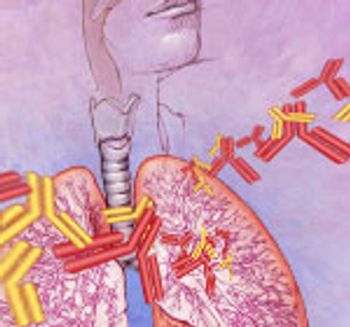
Frontline immunotherapy with Opdivo (nivolumab) plus Yervoy (ipilimumab) delayed disease progression by 60 percent compared with Yervoy alone in patients with advanced melanoma.

Frontline immunotherapy with Opdivo (nivolumab) plus Yervoy (ipilimumab) delayed disease progression by 60 percent compared with Yervoy alone in patients with advanced melanoma.

Everyone's chemotherapy experience is unique.

The FDA has granted a priority review to the antibody-drug conjugate Adcetris as a consolidation therapy following autologous stem cell transplantation in patients with Hodgkin's lymphoma at risk of relapse or progression.

The Food and Drug Administration has granted a breakthrough therapy designation to Xalkori (crizotinib) as a potential treatment for patients with ROS1-positive non–small cell lung cancer, based on phase 1 findings published in the New England Journal of Medicine.

A recent study joins a body of evidence suggesting that long-term, regular aspirin use is associated with a reduced risk for cancer, with the most dramatic reduction being seen in colorectal cancer incidence.

Keytruda (pembrolizumab) had an overall response rate (ORR) of 45.2 percent among a cohort of patients with high PD-L1-expressing non–small cell lung cancer in the early phase KEYNOTE-001 trial.

Planning a flight on a domestic or international airline? If you have active cancer, do your homework first.

MM-302, a novel antibody-drug conjugate that specifically targets cancer cells overexpressing the HER2 receptor, showed signs of clinical activity in heavily pretreated patients with metastatic, HER2-positive breast cancer.

Getting a cancer diagnosis pulls the rug out from under your life. It's a struggle to give up expectations and learn to accept the unknown.

The gift of the moment is not lost in my thoughts.

Learn about breakthroughs in research and treatments on Twitter from top cancer researchers

Terminal illness is like watching a bus barreling toward you and you're stuck in the road. The least you can do is make the wait enjoyable.

A new study has shown that vaccinating adolescent boys may be cost-effective for preventing oropharyngeal cancer, a disease that's projected to become the most common HPV-related cancer by 2020.

Cancer Survivors Beauty and Support Day is an annual event on the first Tuesday in June where those in the beauty industry volunteer services to cancer patients and survivors.

The PALOMA-3 trial examining an Ibrance (palbociclib) regimen in HR-positive/HER2-negative breast cancer was halted after an independent panel determined it met the primary endpoint of improving progression-free survival.

I cried a lot when newly diagnosed and I learned how to work through my cancer feelings.

A new telephone-based intervention for breast cancer survivors is showing promise, and it involves them becoming more actively engaged in goal setting and problem solving with an eye toward accelerating their recovery by engaging in health-promoting activities such as exercise, stress management and healthy eating.

Breast cancer patients with diabetes were significantly more likely to be diagnosed with advanced-stage breast cancer than those without diabetes.

A new study has found that patients with lower vitamin D levels prior to treatment for follicular lymphoma are more likely to die or relapse from the disease earlier than patients with adequate vitamin D levels in their blood.

It turns out the answer to being happy is a pretty easy one

I am always fascinated about how much great information there is online. I'm also a bit miffed at how much that information can hold back patients.

The treatment landscape for advanced pancreatic cancer has expanded in recent years, but it continues to be a very complex and devastating disease.

The best breast self-exam involves pressing towards center like the spokes of wheel.

The possibility of going bankrupt is high on the list of concerns for more than a third of cancer patients who participated in a recently published survey by the Cancer Support Community.

I cherish the moment I found support and realized I wasn't alone. Giving back in gratitude for that support was the next step in healing from my cancer.

The diagnosis of a hereditary syndrome that can lead to colorectal cancer—such as Lynch syndrome or familial adenomatous polyposis (FAP)—can be permanently life-changing, counselors and patients agree.

Many women who are diagnosed with breast cancer are concerned about the genetic risk of developing other cancers themselves or of a loved one developing cancer. However, a large amount of those concerns are not being addressed, according to a new study.

The incidence of colorectal cancer has been steadily rising by about 1.5 percent per year for people under 50.

Finding spiritual comfort in the midst of cancer, it can be done.

Some friends meet in unexpected ways. They come into your life during times when you least expect them.